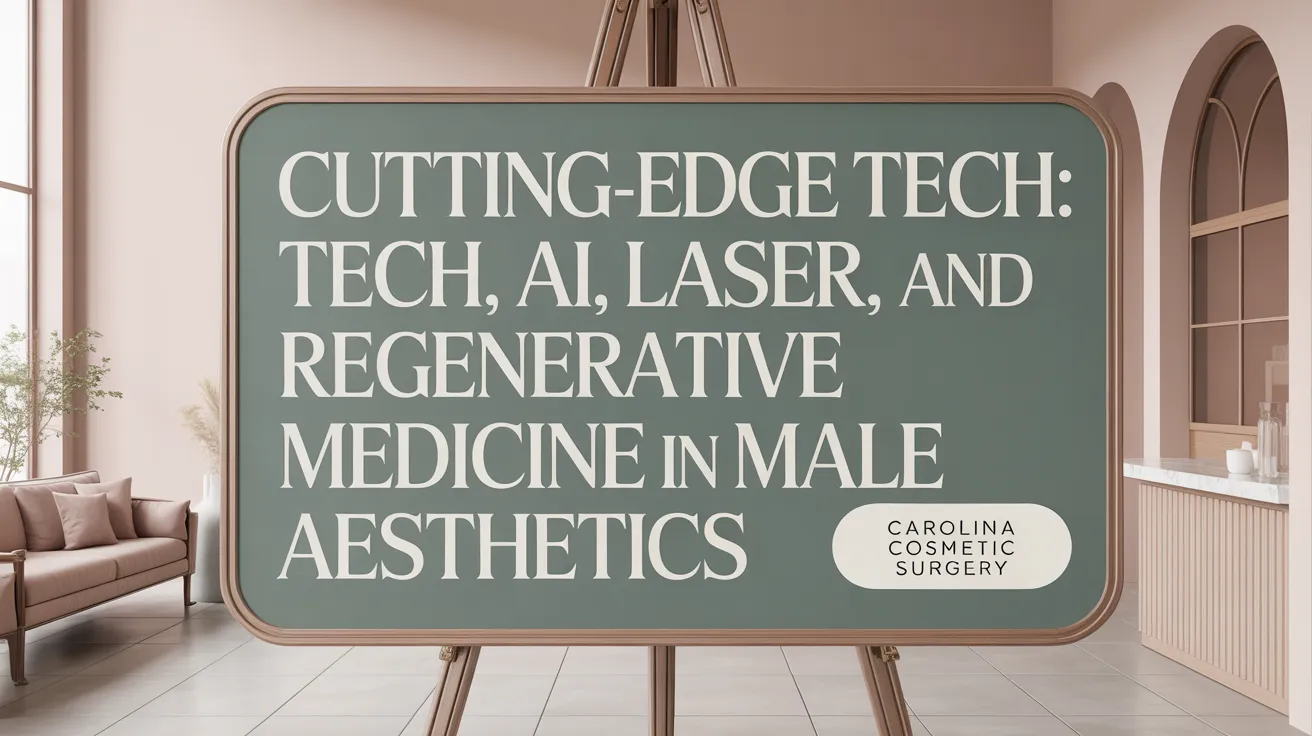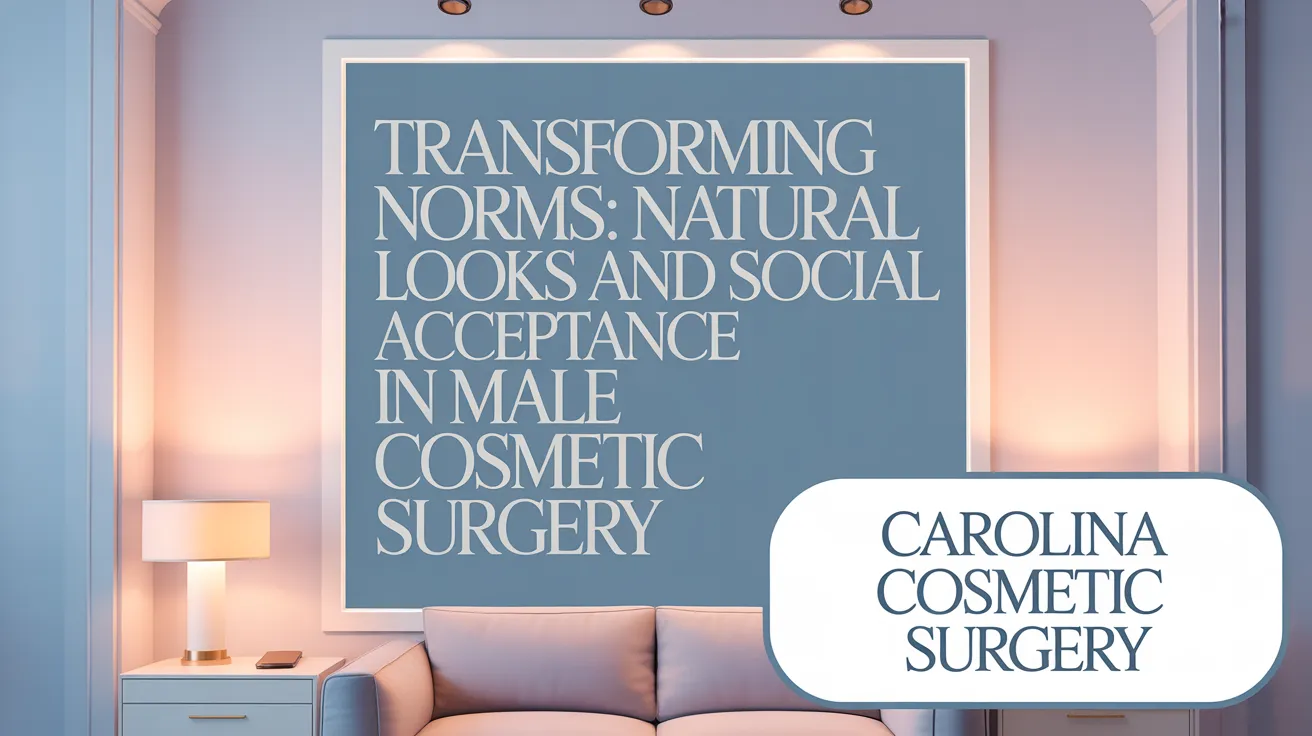An Expanding Frontier in Male Cosmetic Surgery
The landscape of male cosmetic surgery in 2024 is marked by impressive growth and evolving sophistication. More men than ever are embracing aesthetic procedures to enhance their appearance while maintaining natural, masculine features. This article delves into the latest trends, innovations, and industry insights shaping male cosmetic surgery today, offering readers an in-depth perspective on the options and advancements that define this expanding field.
<!-- VIDEO:eyJsaW5rIjoiaHR0cHM6Ly93d3cueW91dHViZS5jb20vd2F0Y2g/dj1KX2JkM1pMQmpBcyIsImltYWdlVXJsIjoiaHR0cHM6Ly9lbmNyeXB0ZWQtdGJuMC5nc3RhdGljLmNvbS9pbWFnZXM/cVxcdTAwM2R0Ym46QU5kOUdjUndkTTdIc210dGVUQjM4NE1xWEwydWtuM053U1ZER3N0MDh3Q3d3Mk1zNjlwT1xcdTAwMjZzIiwidGl0bGUiOiJNYWxlIHBsYXN0aWMgc3VyZ2VyeS4gQ3VycmVudCB0cmVuZHMgYW5kIG5ldyBkZXZlbG9wbWVudHMuIiwic25pcHBldCI6Ii4uLiB3aGF0IHRoYXQgbWFsZSBwYXRpZW50IGNhbiBleHBlY3QgYnJvYWRseSwgZnJvbSBlYWNoIG9wZXJhdGlvbi4gTWVuIG5vIGxvbmdlciBuZWVkIHRvIGJlIHNjYXJlZCBvZiBiZWluZyBjYXVnaHQgb3IgZm91bmQgb3V0IGlmIHRoZXkgY29uc2lkZXLCoC4uLiJ9 -->Key Trends Defining Male Cosmetic Surgery in 2024

What are the current trends in male cosmetic surgery for 2024?
In 2024, the landscape of male cosmetic surgery is experiencing significant growth, driven by evolving beauty standards, technological improvements, and a shift towards normalization. Men increasingly seek procedures that enhance their appearance naturally and discreetly.
Non-invasive treatments such as Botox, dermal fillers, and skin rejuvenation techniques like platelet-rich plasma (PRP) and exosome therapies continue to dominate, making up about 80% of procedures. These treatments offer quick recovery times and subtle results, appealing to men who want to maintain a masculine and refreshed look without surgery.
Surgical procedures remain popular, with rhinoplasty, eyelid surgery (blepharoplasty), facelifts, and gynecomastia (male breast reduction) leading the demand. For instance, eyelid surgeries are now the most common among men in 2024, surpassing liposuction. Facelifts are attracting younger men aged 35-55, mainly to address neck laxity or "turkey neck," with surgeons focusing on the lower face and neck to avoid over-treatment of the upper face.
Men are also increasingly pursuing facial contouring—like jawline enhancements with dermal fillers, chin implants, or VASER liposuction—and hair transplants to combat hair loss, emphasizing a youthful, masculine appearance. Gynecomastia remains a top procedure helping men achieve a more masculine silhouette.
The trend toward facial rejuvenation in younger men reflects greater social acceptance, with a 42.5% rise in procedures over four years. Surgeons report that 92% now treat male patients, up from 87% in 2023, highlighting the expanding market.
Advancements in regenerative medicine, including PRP and exosome therapies, are anticipated to future-proof this growth, offering minimally invasive options for skin rejuvenation. Overall, the male cosmetic surgery market is thriving globally, particularly in the US, Brazil, and Japan, where safety and results that look natural and masculine are prioritized.
How has the popularity of minimally invasive procedures evolved?
Minimally invasive procedures like Botox, fillers, Sofwave, microneedling, and radiofrequency treatments now comprise the majority of male aesthetic treatments. Nearly half of surgeons report increased demand for treatments driven by the popularity of drugs like GLP-1 medications, which contribute to weight management and overall youthful appearance.
These procedures are preferred for their quick results, minimal downtime, and ability to produce natural-looking enhancements. They enable men to maintain a confident appearance without the risks or recovery time associated with traditional surgery.
What about facial rejuvenation in younger men?
The trend toward younger patients seeking facial rejuvenation reflects a shift from reactive to proactive aesthetic care. Men aged 35-55 are increasingly requesting facelifts and neck contouring, mainly for addressing signs of aging such as skin laxity. These procedures are focused on the lower face and neck to ensure a natural look.
How is the industry making procedures more accepted and less stigmatized?
There is a broader societal shift toward acceptance of male cosmetic procedures, supported by the normalization of aesthetic enhancements. With 92% of surgeons treating male patients in 2024, it is clear that these procedures are no longer confined to women.
Men are seeking subtle, natural results that enhance their confidence while avoiding overly done appearances. This evolution reflects changing beauty standards, increased awareness, and the desire for aesthetic procedures to be a discreet part of personal grooming.
Overview of popular procedures among men in 2024
| Procedure | Description | Notable Trends |
|---|---|---|
| Rhinoplasty | Nose reshaping, most frequently requested surgical procedure | High revision rate, focus on natural looks |
| Eyelid surgery (blepharoplasty) | Adjustment of upper and/or lower eyelids to reduce tired look | Most common among men, global trend |
| Facelift | Full or partial facial lift, younger patients trend | Focus on lower face and neck, natural results |
| Liposuction and body contouring | Fat removal from stubborn areas like abdomen, love handles | Growing demand for body shaping |
| Gynecomastia | Male breast reduction to achieve a masculine chest | Consistent top choice for men |
| Hair transplants | Hair restoration to address thinning or loss | Significant for male appearance |
| Non-surgical treatments | Botox, fillers, skin tightening therapies | Popular for maintenance and subtle enhancement |
As the industry continues to evolve, the emphasis remains on techniques that produce natural, masculine aesthetics with minimal invasiveness. The future of male cosmetic surgery in 2024 is characterized by innovation, normalization, and a focus on personal confidence.
Popular Cosmetic Procedures Among Men: Surgical and Non-Surgical

Which cosmetic procedures are most popular among men in 2024?
In 2024, men continue to pursue a range of cosmetic procedures to enhance their appearance subtly and naturally. Non-invasive treatments like Botox and dermal fillers remain the most common, with these minimally invasive options making up about 80% of male aesthetic treatments. These procedures are favored for their quick results and minimal downtime, helping men achieve a refreshed look without dramatic changes.
Surgical procedures also retain high popularity. Rhinoplasty leads the list among surgical options, with about 25% of all cosmetic surgeries involving nose reshaping. Liposuction remains widely performed, particularly on stubborn areas like the belly, flanks, and love handles, helping men refine their body contours.
Male breast reduction, known as gynecomastia surgery, is another top choice, allowing men to regain a more masculine chest profile. Eyelid surgery, or blepharoplasty, is increasingly popular among men seeking to reduce tired or sagging eyelids, creating a more alert appearance.
Facelifts are gaining traction, especially among men aged 35-55, primarily targeting the lower face and neck to address laxity and 'turkey neck.' This trend reflects a desire among men to maintain a youthful yet natural look, emphasizing masculinity.
What are the latest trends in male cosmetic procedures?
There is a growing preference for procedures that deliver natural results. Men favor subtle enhancements that improve confidence without appearing overdone. Body contouring and hair transplantation are also in high demand, catering to the ongoing desire for a youthful, athletic appearance.
Advances in regenerative medicine, including platelet-rich plasma (PRP) and exosome therapies, are poised to become future mainstays, offering minimally invasive skin rejuvenation options.
How do male aesthetic preferences shape procedures?
Men largely favor procedures that focus on masculinity, natural facial contours, and aging gracefully. The emphasis is on targeted treatments like jawline contouring with dermal fillers or chin implants to enhance facial structure. Surgical and non-surgical options are tailored to achieve these goals discreetly, blending seamless results with minimal recovery time.
| Procedure Type | Popularity in 2024 | Focus Area | Additional Details |
|---|---|---|---|
| Surgical | Rhinoplasty, liposuction, gynecomastia, facelifts | Face and body contours | Natural results, less invasive techniques |
| Non-Surgical | Botox, dermal fillers, laser treatments | Facial rejuvenation | Quick recovery, subtle improvements |
| Emerging Technologies | PRP, exosome therapies | Skin rejuvenation | Minimally invasive, regenerative approaches |
This evolving landscape underscores a trend toward procedures that provide aesthetic enhancement with minimal disruption, aligning with modern male beauty standards focused on natural, confident appearances.
Innovations and Advances Shaping Male Aesthetic Treatments

What recent innovations and developments have emerged in male aesthetic procedures?
Recent advancements in male cosmetic surgery highlight a focus on minimally invasive and precise techniques. Improvements in laser technology have allowed for safer, quicker procedures with less downtime, making treatments more appealing to men looking for subtle enhancements.
Robotic-assisted surgeries are emerging as a way to increase accuracy, particularly in facial procedures like rhinoplasty, facelifts, and eyelid corrections. These innovations help surgeons achieve more natural, masculine results that meet patient expectations.
Personalized treatment planning now often involves AI-driven 3D imaging and simulation. This technology allows both surgeons and patients to visualize outcomes before surgery, ensuring realistic goals and better satisfaction. It is especially useful in complex procedures such as nasal reshaping and facial contouring.
A significant trend in male aesthetic medicine is regenerative therapy, including platelet-rich plasma (PRP) and exosome-based treatments. These therapies promote skin rejuvenation and tissue repair, offering a minimally invasive alternative to traditional facelifts and improving skin quality.
In addition to surgical techniques, non-surgical options like neuromodulators (Botox) and dermal fillers remain highly popular among men. They provide quick results, natural looks, and minimal recovery times.
Furthermore, the rise of GLP-1 medications like Ozempic has influenced a surge in non-surgical body contouring treatments, reflecting an integrated approach to aesthetic enhancements.
Overall, these innovations aim to deliver tailored, natural results with less invasiveness, aligning with men's desire for discreet, effective, and confidence-boosting procedures.
Evolving Industry Standards and Cultural Shifts

How are industry standards evolving in male cosmetic surgery?
The landscape of male cosmetic surgery is witnessing significant changes as standards adapt to meet evolving societal norms and aesthetic ideals. Industry experts are increasingly focusing on creating results that are natural, masculine, and tailored specifically for male anatomy. This shift involves emphasizing minimally invasive and noninvasive procedures such as Botox, dermal fillers, and skin-tightening treatments, which offer quicker recovery times and subtle enhancements.
Tailoring procedures for male anatomy and aesthetics plays a crucial role. For example, rhinoplasty techniques are now customized to preserve masculine features, while liposuction targets stubborn fat areas like the flanks or abdomen to sculpt a more defined silhouette. Facial rejuvenation methods, including facelifts and blepharoplasty, are now designed to address common male concerns like neck laxity and a less invasive approach with less emphasis on overly youthful or feminized results.
The rise in demand for such procedures among men reflects broader cultural shifts. Greater social acceptance and reduced stigma around men seeking aesthetic enhancements are driven by increased visibility on social media and changing ideals of masculinity. Men now seek procedures that improve confidence without compromising their natural look or conveying a “done” appearance.
This transformation extends beyond techniques to include a focus on patient education and ethical marketing. Practitioners prioritize comprehensive consultations to align treatments with individual goals, emphasizing safety and realistic expectations. The industry is moving toward an inclusive approach, promoting diversity in standards of male beauty, and recognizing that personalized, subtle enhancements can significantly boost self-confidence.
As innovations continue and societal attitudes evolve, the industry's standards are increasingly aligned with safety, personalization, and natural outcomes, making male cosmetic surgery more accessible, appealing, and socially accepted than ever before.
Educational Insights and Expert Perspectives on Male Cosmetic Procedures
What educational information is essential regarding male cosmetic treatments and their benefits?
For men considering cosmetic procedures, understanding the variety of available options and their specific benefits is crucial. Treatments range from surgical options such as rhinoplasty, facelifts, and gynecomastia surgery to minimally invasive treatments like Botox, dermal fillers, and laser-based therapies. Patients should be aware of the potential risks involved, the expected results, and the recovery times associated with each procedure.
It's also important to choose qualified, board-certified surgeons with experience in male aesthetics. Proper planning involves detailed consultations, pre-operative photography, and clear communication about techniques and costs. Nonsurgical options like Botox, CoolSculpting, and laser hair removal offer less invasive alternatives with quick recovery, making them attractive to men seeking subtle but effective improvements.
Furthermore, maintaining a healthy lifestyle and understanding possible complications help ensure safe and satisfactory outcomes, emphasizing that cosmetic procedures should complement overall well-being.
What do experts and recent research say about male aesthetic surgery?
Experts observe that male cosmetic surgery is gaining broader acceptance globally, fueled by changing societal standards, increased social media influence, and greater awareness through medical professionals. The shift towards minimally invasive procedures such as neurotoxins (like Botox), dermal fillers, and regenerative therapies like platelet-rich plasma (PRP) is prominent.
Popular surgical procedures include rhinoplasty, blepharoplasty, and facelifts, especially among younger men aged 35-55 who seek a more refreshed appearance. Factors motivating men include personal desire for self-improvement, societal expectations of masculinity, and the pursuit of confidence enhancement.
In regions like Saudi Arabia and Europe, initial awareness was low, but societal acceptance is growing due to motivations rooted in self-care and wellness. Experts emphasize tailored treatment plans that prioritize safety and natural results, considering individual anatomy and goals. Overall, recent research underscores a trend towards normalization and diversification of male aesthetic procedures, highlighting their importance in modern cosmetic medicine.
The Future of Male Cosmetic Surgery
Male cosmetic surgery in 2024 is a testament to the dynamic intersection of technological innovation, evolving cultural norms, and heightened demand for personalized aesthetic care tailored to men. With a steady rise in both surgical and minimally invasive procedures, men are embracing treatments that emphasize natural, confident, and youthful appearances. As regenerative medicine and advanced imaging technologies continue to evolve, the future holds promising avenues for even more refined and less invasive enhancements. For men considering cosmetic treatments, understanding the array of options and seeking expert guidance ensures safe, effective, and satisfying results. Ultimately, the male cosmetic surgery landscape is set to expand further, reflecting broader acceptance and the continuous pursuit of self-confidence and well-being.
References
- 2024 Plastic Surgery Statistics Report
- 2024 Annual Trends Survey
- Recent Trends in Men's Plastic Surgery Procedures
- Top Plastic Surgery Procedures Men Are Getting in 2025
- Plastic surgeon reveals the most popular procedures for men
- Global Survey 2024: Full Report and Press Releases
- 2024 Annual Trends Survey
- Global Survey 2024: Full Report and Press Releases
- Plastic Surgery Statistics
